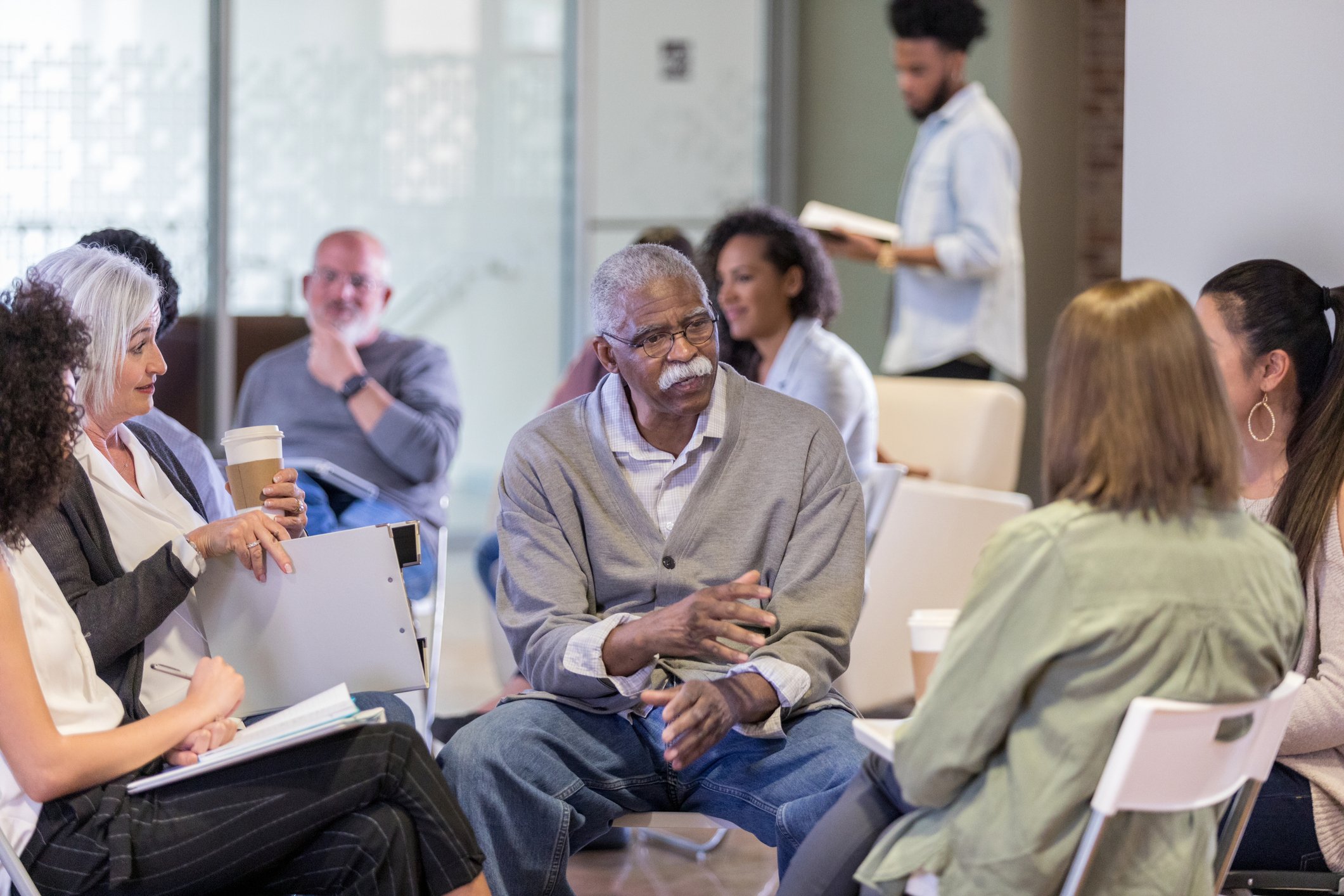Design Strategy: How to Choose a Qualitative Research Design
By Dr. Linda Bloomberg, joined by Dr. Janet Boberg and hosted by Janet Salmons, Ph.D., Research Community Manager for Sage Methodspace
Research design is essentially a series of decision points.
This presentation is the first of a series about qualitative research strategy from Linda Bloomberg:
Q2: Data Collection Strategy: How to Choose What Data to Collect from Whom
Each choice made at the design stage defines and clarifies the study’s direction. In qualitative research, methodologies provide a philosophical lens through with the researcher views the problem being investigated. Two researchers could start with the same problem, even the same question, and conduct it in a completely different way depending on the methodological choice. How do you decide which methodology fits your study?
Linda Bloomberg and Janet Boberg explain the importance of a strategic approach that stresses alignment with the purpose of the study. They walk through this decision-making process and demonstrate how each choice lays the groundwork for the next.
Linda Bloomberg, author of "Completing Your Qualitative Dissertation A Road Map From Beginning to End," discusses qualitative design decisions with Janet Boberg in this Methodspace interview.
Linda Dale Bloomberg EdD., is a former adjunct faculty and dissertation advisor in the department of adult learning and leadership at Teachers College, Columbia University, and currently develops curriculum for qualitative research in graduate online programs for National University, serving as faculty coach, dissertation chair, and doctoral subject matter expert. She also serves as consultant to various research, higher education, and nonprofit advisory boards including The Future Talent Council, and is founder of Bloomberg Associates and ILIAD (Institute for Learning Innovations and Adult Development) and cofounder of Columbia University’s Global Learning and Leadership Institute. As senior researcher for the South African Human Sciences Research Council and National Institute for Personnel Research, Dr. Bloomberg’s work focused on change management; diversity, equity, and inclusion initiatives; and enhanced workplace learning. She is the author of multiple publications in the fields of qualitative research, organizational evaluation, leadership development, ensuring equitable student success, adult learning, and distance education, and is a contributor to The SAGE Encyclopedia of Educational Research, Measurement, and Evaluation (2018). Her two most recent books include the 5th edition of Completing your qualitative dissertation: A road map from beginning to end (2023) from Sage; and Designing and delivering effective online instruction: How to engage adult learners (2021). Teachers College Press, Columbia University. This publication was nominated for the 2021 and 2022 Division of Distance Learning (DDL) for the Association of Educational Communications and Technology (AECT), one of the premier international organizations for instructional design and ed-tech. Dr. Bloomberg presents regularly at national and international professional conferences on topics related to diversity initiatives in higher education, adult learning, qualitative research, and dissertation instruction. She holds master’s degrees in counseling psychology, organizational psychology, and education, and is credentialed with the International Coaching Federation (ICF). In 2006, she received her doctorate in adult education and organizational learning from the AEGIS program Columbia University that was established by Jack Mezirow, founder of Transformative Learning theory.
Janet Boberg, Ed.D. has been a part-time faculty member at several universities including Arizona State University, Northern Arizona University, National University, and Northcentral University and teaches courses in certified public management, counseling, evaluation, research, and statistics.
More Methodspace Posts About Research Design
Find suggestions for navigating the problem formulation stage that precedes research design in social science research.
Let’s begin this quarter’s exploration of research design by thinking about the research problem or topic. Who decides what to study?
What ethical research practices are needed in a time-pressured crisis - such as the pandemic we have so recently experienced? These are questions the PREPARED team is tackling. Watch the livestream of the recent meeting in Paris.
The goals for this collaborative feminist research project were to bring together scholars who had critical methodological lenses, focusing our study through a collaborative feminist methodological lens to explore and address gender-based inequities in higher education institutions. Find the open-access book and toolkit the co-authors created.
Find a collection of Sage books about ethnographic methods.
In this interview David Antons and Oliver Salge discuss the roles humans and machines can take to plan and conduct computational literature reviews.
In this interview Dr. Marc Anderson explains how and why to use citation context analysis to track impact of scholarly publications over time.
Ethnography is a widely used qualitative methodology, growing from roots in anthropology to acceptance in a wide range of disciplines.
For researchers interested in incorporating equity into their work, it all starts at the very beginning with designing the study. Learn more in this guest post!
In this Sage Methodspace webinar Dr. Matti Nelimarkka and Dr. Friedolin Merhout discuss strategies for engaging with students and building the skills needed to design, plan, and conduct studies using computational social science methods
How do you decide which methodology fits your study? In this dialogue Linda Bloomberg and Janet Boberg explain the importance of a strategic approach to qualitative research design that stresses alignment with the purpose of the study.
Dr. Brian Fox explains why systematicity is important in literature reviews.
In the article “Theorizing Through Literature Reviews: The Miner-Prospector Continuum” Dermot Breslin and Caroline Gatrell pose an intriguing question: do you approach the literature review as a miner or as a prospector? They discuss options in an interview.
What are narrative methods? In this post find a description, and a collection of books and open-access exemplars that use qualitative, quantitative, and mixed methods approaches.
How do decide what literature you need for a review? See this post featuring an interview Martin Hiebl and related open-access article about sample selection.
Garima Sharma and Pratima (Tima) Bansal discuss ways to engage with managers, professionals, or practitioners to learn from the literature using a systematic review process.
Learn about Sage books about designing, conducting, and analyzing data for action research and other participatory methods across multiple disciplines. You will find open-access preview chapters and a discount code.
In this interview Dr. Herman Aguinis and Dr. Ravi Ramani discuss the article they wrote with Dr. Nawaf Alabduljader, “Best-Practice Recommendations for Producers, Evaluators, and Users of Methodological Literature Reviews.”
Find tips for organizing and synthesizing methodological sources for your literature review.
In this interview Dr. Matthew Cronin discusses the article he wrote with Elizabeth George, “The Why and How of the Integrative Review.”
In this post you can find SAGE books that will help you learn more about grounded theory methodology.
Professor Lesley Wood is experienced with engaged, participatory research. In this post she offers researchers advice about how to think about your role.
View a recorded webinar with Dr. Janet Salmons, Research Community Manager for Methodspace and author of Doing Qualitative Research Online, Dr. Stacy Penna, Customer Engagement and Enablement Director for Lumivero (previously NVivo, and Leon Bourner, Director of Sales and Client Development for itracks.
Professor Lesley Wood explains why it is important to engage with stakeholders and participants, and how to build these practices into your own research.
Selecting the methodology is an essential piece of research design. Grounded theory is one option, a methodology used for both qualitative and quantitative research.
Find SAGE books about phenomenological research, sample chapters, and a purchase discount.
Learn how computational social sciences help scholars to renew their research in several directions.
How can you use published literature as data? In this Methodspace interview Dr. David Denyer explains how and why to use review research.






























Learn about connecting the unit of analysis with the qualitative methodology.